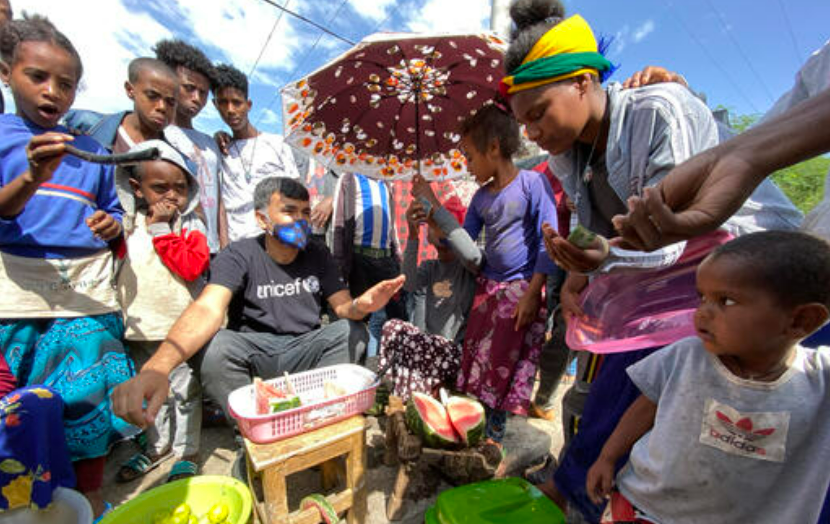Geneva, August 1 — The United Nations Children’s Fund (UNICEF) has issued an alarming report revealing a tenfold increase in the number of children requiring treatment for life-threatening severe acute malnutrition (SAM) in Tigray, northern Ethiopia. UNICEF estimates that over the next 12 months, more than 100,000 children in the conflict-ridden region could suffer from this dire condition – a staggering surge compared to the average annual caseload.
Screening data also shows alarming rates among pregnant and breastfeeding women, with nearly half (47 percent) acutely malnourished. These worrying figures raise concerns about potential pregnancy-related complications, increasing the risks of maternal mortality during childbirth and the birth of low-weight babies, who are more susceptible to illnesses and mortality.
The malnutrition estimates for children are based on data analysis from weekly Mid-Upper Arm Circumference (MUAC) screenings conducted by UNICEF and partners since the conflict erupted nine months ago. The data, collected from more than 435,000 children, indicates severe acute malnutrition at 2.3 percent and moderate acute malnutrition at 15.6 percent, surpassing the emergency threshold of 15 percent. The screening data for mothers was collected simultaneously.
The crisis unfolds amidst widespread damage to vital food, health, nutrition, water, and sanitation systems, on which children and their families depend for survival. The risk of disease outbreaks is also high, especially in overcrowded and unsanitary sites housing displaced families.
UNICEF Spokesperson, Marixie Mercado, personally witnessed the dire conditions during nutrition screenings in Wajirat and Gijet woredas, two districts that were previously inaccessible due to the conflict. In many areas, there were shortages of therapeutic foods required to treat severe acute malnutrition, as well as antibiotics and electricity in health facilities. Additionally, children have been deprived of vaccinations for months.
The situation is further exacerbated by recent upsurges in fighting in the neighboring Afar and Amhara regions, where nearly 1.5 million people are already facing acute food insecurity. Tens of thousands of people have been displaced, and food stores have been looted. Without adequate humanitarian assistance, child malnutrition is expected to escalate beyond the already alarming levels, posing an increased risk of mortality among the vulnerable population.
To address this crisis, UNICEF is mobilizing supplies to meet new emergency needs in Afar and Amhara. However, to effectively tackle the nutrition, health, water, and food security catastrophe in Tigray and surrounding regions, there must be a significant scale-up of humanitarian aid. UNICEF emphasizes that unhindered access to the region is vital to provide urgent support to children and women in need.
Currently, UNICEF warehouses in Tigray hold only 6,900 cartons of life-saving ready-to-eat therapeutic foods, sufficient to treat severe malnutrition in just 6,900 children. To avert a humanitarian standstill, the humanitarian community must be allowed to conduct their work without hindrance, including access to fuel, cash, telecommunications, and essential supplies.
UNICEF calls upon all parties involved in the conflict to uphold their fundamental obligation to protect children from harm. The nutrition and food security crisis in Tigray and neighboring regions is a direct consequence of armed conflict, and only through resolution by the conflict parties can this dire situation be addressed.








